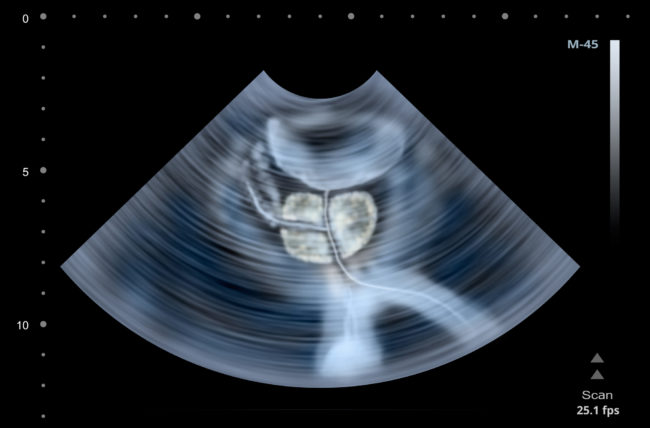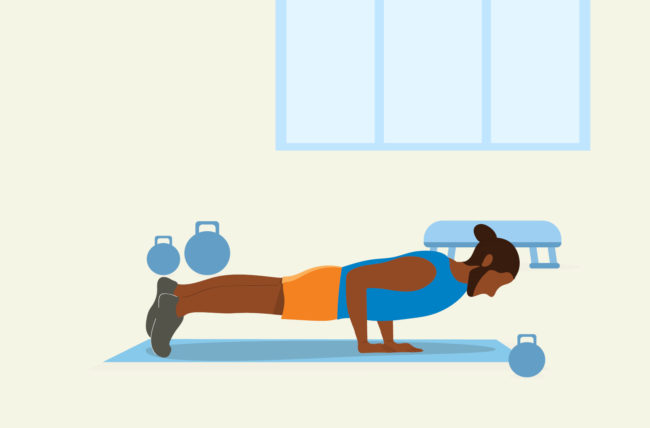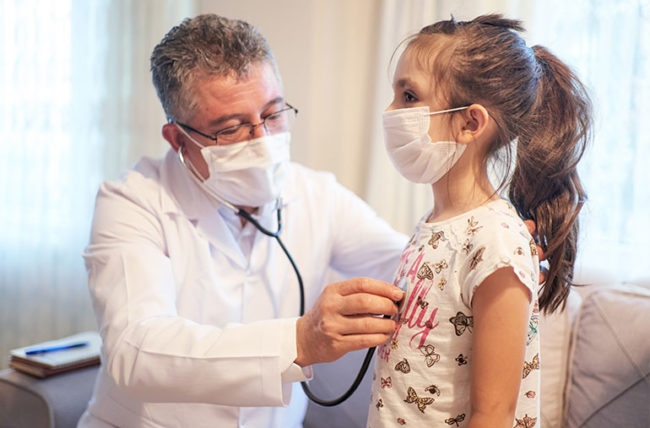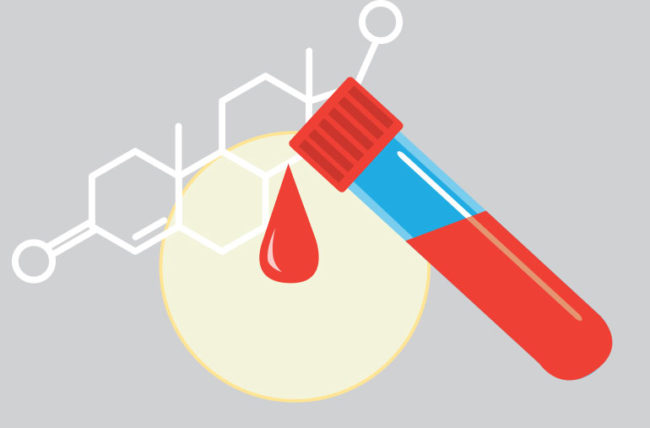It’s a minor inconvenience to have to get up in the middle night to go to the bathroom. If you take bathroom breaks throughout the day and find that you still need to urinate several times at night, then you might be worried about your frequency.
The frequency of urination varies for each person. There is no single answer to the question of how many times you should urinate per day. If your frequent trips to the toilet are causing you to miss work or disrupt your life, or worse, if you have pain while urinating, then you should consult a doctor.
There are many causes of urinary issues, regardless of gender. However, if you have a cisgender male or assigned as male at birth (AMAB), then there may be specific underlying factors that contribute to your problem. Urologist Petar Bajic, MD, explains some of the most common causes.
What is ‘frequent Urination’?
It’s not always a sign that something is wrong. According to Dr. Bajic, the answer to whether you’re urinating excessively depends on whether you find it bothersome.
He says that “most people who complain about frequent urination may be annoyed by urinating once every hour, twice an hour, or even three times in a day.” You’re either annoyed by it or it interferes with your ability or desire to do certain activities or things.
What causes frequent urination among men?
It’s not uncommon for frequent urination to be caused by a variety of factors. Sometimes, however, it comes down to the way you consume and process liquids. There are generally two types of urinary symptoms that cause frequent urination.
If your bladder is not able to hold much or fills up too quickly, you will experience urinary frequency. You may also have urinary urgency. “We call these storage symptoms,” says Bajic. Then there are a different set of symptoms that we call voiding. These symptoms are related to a difficulty in emptying the bladder, such as a weak urine stream or feeling of incomplete emptying.
There are many causes of frequent urination, and each one has its own symptoms.
Your bladder has filled up
Your body breaks down the nutrients you consume when you eat and drink. These nutrients fuel various biological processes and keep you alive. Your renal filter out waste (also known as unneeded nutrients) from your blood. The urine is then stored in the bladder. The bladder is a hollow, grapefruit-sized organ located in the pelvic region. It expands as it fills up with urine. Your bladder contracts when you use the bathroom to allow you to pee. When you are done, it shrinks again.
You may experience bladder issues if you have frequent urination or are unable to hold urine. It could also be that you accidentally pee or leak while doing activities, or you leak when you do not feel the need to go to a bathroom. These things can happen when your bladder is too full or can’t handle the amount of urine that your body produces. It’s especially important to stop drinking fluids two hours before going to bed if you tend drink a lot.
“I always say to my patients, what you put in must come out,” Dr. Bajic. Excessive fluid consumption will lead to frequent and excessive urination. The bladder can only hold between 350 and 400 milliliters. You’ll feel the urge to urinate once your bladder is full. “Just drinking lots of fluids can contribute to this.”
Diuretics, bladder irritants
Diuretics make you pee more to help your kidneys remove extra water and salt from your body. Diuretics, also known as water pills, are prescribed to treat medical conditions that cause you to retain water. These include kidney failure, cardiac failure, or hypertension. There are also diuretics in food. This is especially true if the food contains caffeine.
Dr. Bajic notes that “all of this will cause you to produce a lot more urine which will cause your bladder fill up more quickly.”
Some foods can also cause bladder irritation. These include spicy foods, alcohol and sugar substitutes like Sweet’N Low (r), Splenda(r) and stevia.
Dr. Bajic says that artificial sweeteners such as sugars and alcohols can irritate the inside linings of the bladder. When these substances are secreted in the urine, they contact the inside lining the bladder. This can cause it to be more spastic.
These foods can cause an hyperactive bladder. This will cause bladder spasms, and an urge to urinate even when your bladder is not full.
Prostate problems
The prostate itself can affect the frequency of your urine. prostate is present in cisgender men, and AMAB people. This prostate adds extra fluid to the ejaculate. The prostate is located just below the bladder and surrounds the tube that takes urine out of the body. The prostate is usually the size of walnut but tends to grow larger after age 40. This condition is called benign hyperplasia. It can be difficult to empty your bladder or urinate completely if your prostate becomes too large.
Dr. Bajic explains that “Prostate enlargement can cause a variety of symptoms, including a feeling of incomplete emptying, or dribbling after leaving the bathroom.”
It is more difficult to empty the bladder when you have an enlarged prostrate. You may need to urinate more frequently if you cannot empty your bladder completely. “Over time, pushing urine through a small prostate can cause strain on the bladder. This can make it overactive like a muscle.”
It is not uncommon for men to have enlarged prostates, even if they aren’t cancerous. By age 50, it affects half of men and women AMAB and 50% of men and women cisgender.
Diabetes
If your blood sugar levels are too high (a href=”https://my.clevelandclinic.org/health/diseases/21498-prediabetes”>prediabetes/a>), you run the risk of developing diabetes. You can develop diabetes if your blood sugar level is too high.
“If you have high blood sugar, it will leach sugar into your urine,” says Dr. Bajic. When there is sugar in your urine, it can actually act as a diuretic and pull more water from your body.
Some medications used to treat diabetes like Farxiga (r) (dapagliflozin) can cause sugar to accumulate in urine to help remove sugar from your body.
Dr. Bajic says that taking the medication may help you control your diabetes, but it could also cause you to urinate more often.
Infections
Urinary Tract Infections can lead to an inflamed (cystitis).. UTIs and cystitis are more common among cisgender people and those assigned female at birth. However, cisgender people and those AMAB may also be affected. It is usually accompanied by frequent urination or painful, burning urination. Other symptoms include a high fever, chills and vomiting.
Neurological causes
Some neurological conditions can cause frequent urination. These include a href=”https://my.clevelandclinic.org/health/diseases/8453-bladder-and-bowel dysfunction in multiple sclerosis”>multiple ms/a>, a href=”https://my.clevelandclinic.org/health/diseases/8525 “parkinsons disease overview”,>Parkinson’s There are several neurological conditions that can cause frequent urination, including Multiple Sclerosis; Parkinson’s disease; Stroke; and Spinal Cord Injuries.
Bladder cancer
Bladder Cancer is fourth most common cancer among cisgender people and men AMAB. While frequent urination can be a sign of bladder cancer there are other symptoms that may also indicate the disease, such as blood in urine, pain when urinating, difficulty urinating, and persistent bladder infection.
How to control frequent urination
Small lifestyle changes, such as avoiding foods that irritate the bladder and using diuretics, can help you reduce how often your urinate. Your healthcare provider will work with you if you are taking a medication which can cause bladder spasms.
If lifestyle changes do not make a difference, or if you are concerned about the frequency of your urination, it is important to work with your healthcare provider to determine the cause. This is particularly true if there is blood in the urine, or if your urination is painful or if you have persistent bladder infections. If you have any of these symptoms, and are over 55 years old, you should consult your doctor immediately to rule out bladder cancer.
Dr. Bajic advises that you should consult your primary care physician to determine if diabetes or other medical conditions are contributing to the symptoms. If it appears that the problem is more likely to be a prostate problem, you should consult your primary care physician or urologist. You can then discuss treatment options including medications or, in some cases, surgical procedures to remove the obstruction from the prostate.
These procedures include a range of surgical procedures, ranging from minimally-invasive office procedures to the partial or complete removals of the enlarged part of your prostate. If you are having difficulty urinating, or you’re concerned about how often you go to the toilet, you should consult your doctor before things get worse.






















